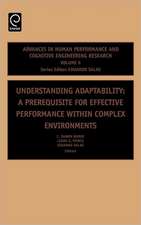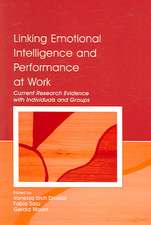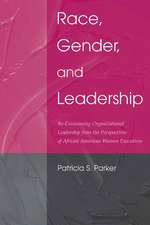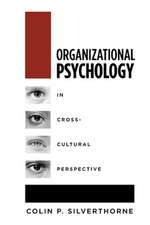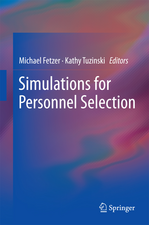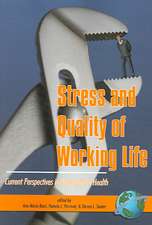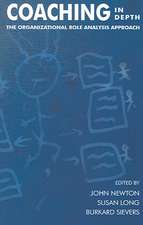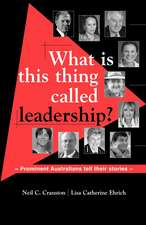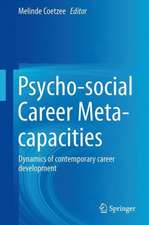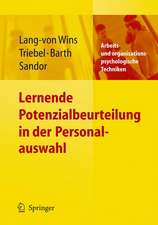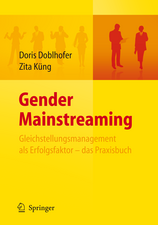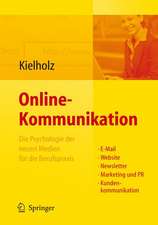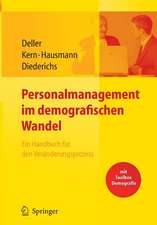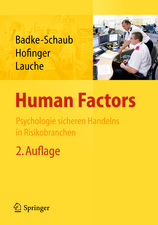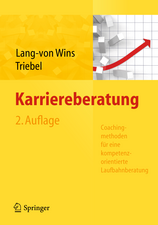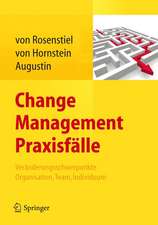Theory, Research and Dynamics of Career Wellbeing: Becoming Fit for the Future
Editat de Ingrid L. Potgieter, Nadia Ferreira, Melinde Coetzeeen Limba Engleză Hardback – 8 oct 2019
| Toate formatele și edițiile | Preț | Express |
|---|---|---|
| Paperback (1) | 566.94 lei 38-44 zile | |
| Springer International Publishing – 8 oct 2020 | 566.94 lei 38-44 zile | |
| Hardback (1) | 580.64 lei 38-44 zile | |
| Springer International Publishing – 8 oct 2019 | 580.64 lei 38-44 zile |
Preț: 580.64 lei
Preț vechi: 725.80 lei
-20% Nou
Puncte Express: 871
Preț estimativ în valută:
111.12€ • 114.79$ • 92.48£
111.12€ • 114.79$ • 92.48£
Carte tipărită la comandă
Livrare economică 21-27 martie
Preluare comenzi: 021 569.72.76
Specificații
ISBN-13: 9783030281793
ISBN-10: 3030281795
Pagini: 367
Ilustrații: XVII, 367 p. 19 illus., 11 illus. in color.
Dimensiuni: 155 x 235 mm
Ediția:1st ed. 2019
Editura: Springer International Publishing
Colecția Springer
Locul publicării:Cham, Switzerland
ISBN-10: 3030281795
Pagini: 367
Ilustrații: XVII, 367 p. 19 illus., 11 illus. in color.
Dimensiuni: 155 x 235 mm
Ediția:1st ed. 2019
Editura: Springer International Publishing
Colecția Springer
Locul publicării:Cham, Switzerland
Cuprins
Chapter 1. Workplace friendship and career wellbeing: the influencing role of mood, health and biographical variables.- Chapter 2. Smart Technology, Artificial Intelligence, Robotics, and Algorithms (STARA): Employees’ perceptions and wellbeing in future workplaces.- Chapter 3. Enhancing career wellbeing: the moderating role of social connectedness between career adaptability and organisational commitment.- Chapter 4. The Relationship Between Career Success and Career Wellbeing.- Chapter 5. A critical review of the value of psychosocial career resources in becoming future-fit.- Chapter 6. Theory-led employment participation practices with people with autism spectrum disorder.- Chapter 7. From Languishing to Flourishing: Towards Career Well-being.- Chapter 8. Woman’s wellbeing at work: their experience of work-family enrichment and subjective career success.- Chapter 9. Framing career wellbeing amongst expatriate knowledge workers: A Narrative analysis.- Chapter 10. Career concern, career satisfaction and career wellbeing as contemporary Human Resources Management issues: Theoretical perspective.- Chapter 11. Career self-management as a key factor for career wellbeing.- Chapter 12. Facilitating career wellbeing: Exploring a career satisfaction and employability profile of knowledge workers.- Chapter 13. don’t think they realised what an impact they had…their voices are still in my head: The profound impact of attentive care on career meaningfulness and wellbeing.- Chapter 14. Life design interventions to promote access to sustainable careers in the context of the fourth industrial revolution.- Chapter 15. Career well-being from a whole life perspective.- Chapter 16. Work Adjustment and Career Wellbeing of People with Neuromuscular Disabilities.
Notă biografică
Ingrid Potgieter is Associate Professor in Human Resource Management at the Department of Human Resource Management at UNISA. She is a registered industrial psychologist at the Health Professions Council of South Africa (HPCSA) since 2009 and also a registered human resource practitioner and the South African board for people practices (SABPP). Ingrid Potgieter completed her Mcom degree in Human Resource Management and Industrial Psychology in 2009 at the University of Pretoria. She completed her Dcom Industrial Psychology degree at Unisa in 2012. She is also an author and co-author of several published articles in local and international journals. In addition, she presented several papers at national and international conferences.
Nadia Ferreira is Associate Professor in Human Resource Management at the Department of Human Resource Management at UNISA. She is a registered human resource practitioner with the South African Board for People Practices (SABPP). Nadia Ferreira completed her MCom degree in Human Resource Management and Industrial Psychology in 2008 at the University of Pretoria. She completed her DCom Industrial Psychology degree at Unisa in 2012. She is also an author and co-author of several published articles in local and international journals. In addition, she presented several papers at national and international conferences.
Melinde Coetzee (DL itt et Phil) is Professor in the Department of Industrial and Organisational Psychology at the University of South Africa. She has 14 years of experience in organisational development, skills development and HR management in the corporate environment and has been lecturing subjects such as Personnel, Career, Organisational and Managerial Psychology since 2000 at undergraduate, honours and masters levels. Melinde is a professionally registered Industrial Psychologist with the Health Professions Council of South Africa (HPCSA) and a master human resource practitioner with the South African Board for People Practice (SABPP). She acted as Chief Editor of the South African Journal of Industrial Psychology (2014 to 2019) and is also the author, co-author and editor of a number of academic books. She has published in numerous accredited academic journals. She has presented numerous academic papers and posters at national and international conferences.
Nadia Ferreira is Associate Professor in Human Resource Management at the Department of Human Resource Management at UNISA. She is a registered human resource practitioner with the South African Board for People Practices (SABPP). Nadia Ferreira completed her MCom degree in Human Resource Management and Industrial Psychology in 2008 at the University of Pretoria. She completed her DCom Industrial Psychology degree at Unisa in 2012. She is also an author and co-author of several published articles in local and international journals. In addition, she presented several papers at national and international conferences.
Melinde Coetzee (DL itt et Phil) is Professor in the Department of Industrial and Organisational Psychology at the University of South Africa. She has 14 years of experience in organisational development, skills development and HR management in the corporate environment and has been lecturing subjects such as Personnel, Career, Organisational and Managerial Psychology since 2000 at undergraduate, honours and masters levels. Melinde is a professionally registered Industrial Psychologist with the Health Professions Council of South Africa (HPCSA) and a master human resource practitioner with the South African Board for People Practice (SABPP). She acted as Chief Editor of the South African Journal of Industrial Psychology (2014 to 2019) and is also the author, co-author and editor of a number of academic books. She has published in numerous accredited academic journals. She has presented numerous academic papers and posters at national and international conferences.
Textul de pe ultima copertă
This volume offers a new conceptualization of career wellbeing by viewing the construct as an individual’s long-term contentment with their career outcomes, career achievements, career changes and their sustainable employability amidst the complexities of the contemporary and emerging future digital-driven work environment. In support of this view of career wellbeing, the volume constructs theoretical frameworks for “future-fit” career wellbeing in the digital-driven work–life context. The chapters juxtaposition current research trends in terms of future potential directions for research on career wellbeing in Industry 4.0. The volume also critically evaluates the relevance, applicability and utility of the research findings and theoretical premises in various current versus potential Industry 4.0 settings for individuals across the life-span. It offers valuable suggestions for practice and interventions.
Caracteristici
Provides a new theoretical framework for “future-fit” career wellbeing in a digital work--life space Brings together a group of top scholars and practitioners who share their creative ideas, research and evidence-based practice Offers multi-disciplinary perspectives on how the concept of career wellbeing may manifest for people in the future digital-driven workplace

